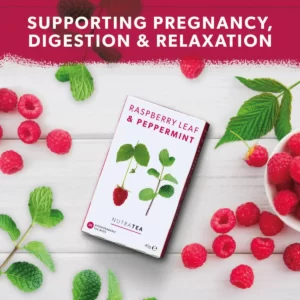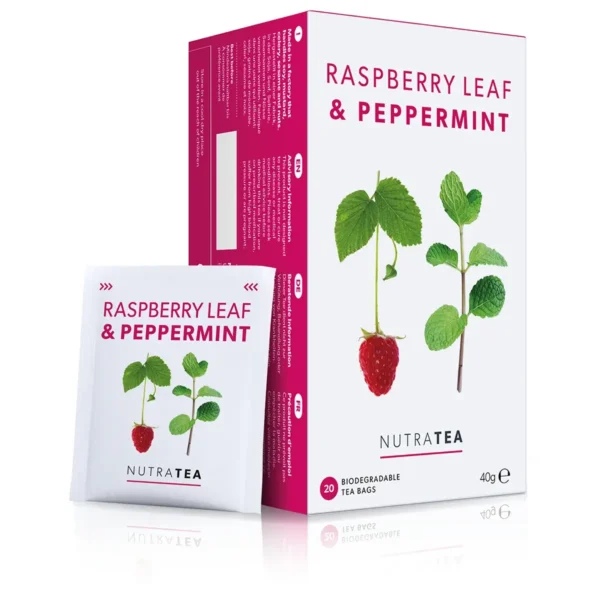NutraBlog
Why Is Raspberry Leaf Known as the Woman’s Herb?

From readying the body for birth to easing the symptoms of PMS, raspberry leaf tea has plenty to offer women at every stage of life.
—
Raspberry leaf tea has plenty to offer people of any gender. Packed with antioxidants, it also supports the digestive system, can help with mouth ulcers, and contains important minerals such as calcium, zinc, and magnesium.
However, raspberry leaf is traditionally known as the woman’s herb – and with good reason.
This herbal tea has been used for centuries to support women through pregnancy and labour. It helps to ease menstrual issues and may even smooth the transition through perimenopause into menopause and beyond.
No matter what stage of life you are in, raspberry leaf tea’s strong association with the female reproductive system means it is an ideal option to help you navigate the joys and challenges of womanhood.
Not yet convinced? Let’s look at some of the ways this herb can benefit women in more detail.
1. Supports Pregnancy and Childbirth
One of the most famous uses of raspberry leaf tea is supporting women in the later stages of pregnancy – indeed, 38% of postnatal women report using the herb during their pregnancies.
It is most often recommended during the third trimester. This is because it contains fragarine, a compound that helps to strengthen and tone the muscles of the uterus, supporting our bodies are they prepare for childbirth.
2. Shortens Labour
Another reason that many women drink raspberry leaf tea in the third trimester of pregnancy is that it is believed to make labour shorter and easier. It is also said to reduce the likelihood of interventions such as the use of forceps.
Research on this has been inconclusive, although there are studies that support the theory that raspberry leaf can shorten labour and reduce the use of forceps. It may also reduce the risk of excessive bleeding.
Since raspberry leaf tea is safe in the third trimester, many women opt to drink it in the hope it will support an easier labour.
3. Eases PMS
OK, so raspberry leaf tea might be good during pregnancy. But what about the rest of the time? Well, even if you are done having kids, miles from that stage of life, or never intend to have any anyway, it is still worth incorporating “the woman’s herb” into your monthly routine.
That’s because the fragarine in raspberry leaves is useful for more than just toning the uterus ready for childbirth. Its muscle-strengthening properties are also great for menstrual cramps – something experienced by more than 80% of women.
Raspberry leaf tea is also anti-inflammatory, which means it may help to ease other symptoms of menstruation, such as nausea and diarrhoea. And it may help with bloating too – as a mild diuretic, it encourages our bodies to release extra water.
Finally, this herbal tea is said to reduce heavy flow and make your periods more regular.
4. Relieves the Symptoms of Menopause
Finally, those going through perimenopause may also want to make raspberry leaf tea part of their regular rotation.
As we saw above, one of the benefits of this herb is that it can reduce excess bleeding during your period – and one of the early signs of menopause for many women is erratic and overly heavy periods.
Another benefit of raspberry leaf tea is that it can help with stabilising our blood sugar levels. While this may not immediately appear related to menopause, our sensitivity to insulin often decreases as our oestrogen levels fall, leading to an increased risk of high blood sugar and diabetes.
As a result, herbs like raspberry leaf that support blood sugar management can be very beneficial during perimenopause and beyond.


